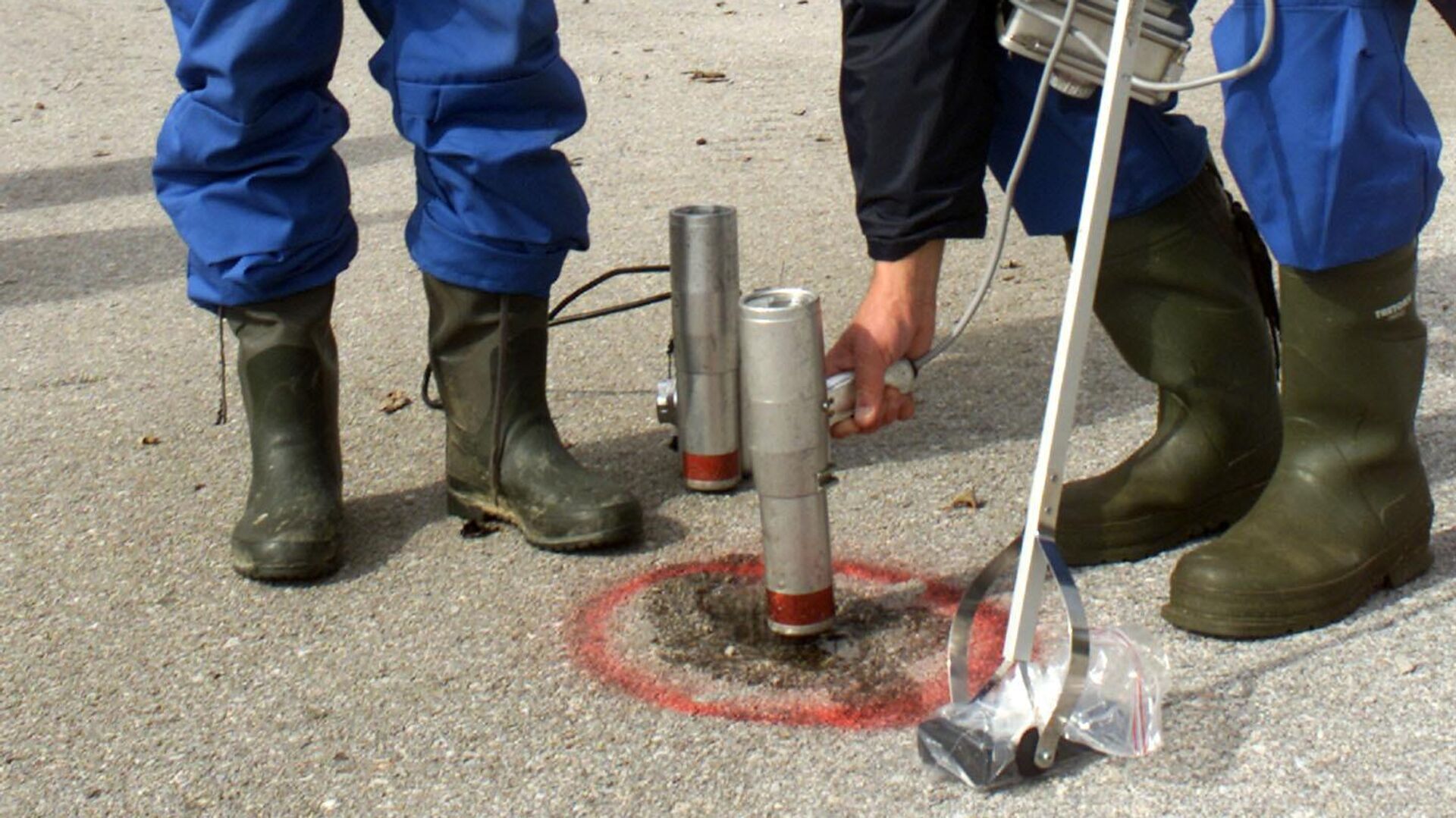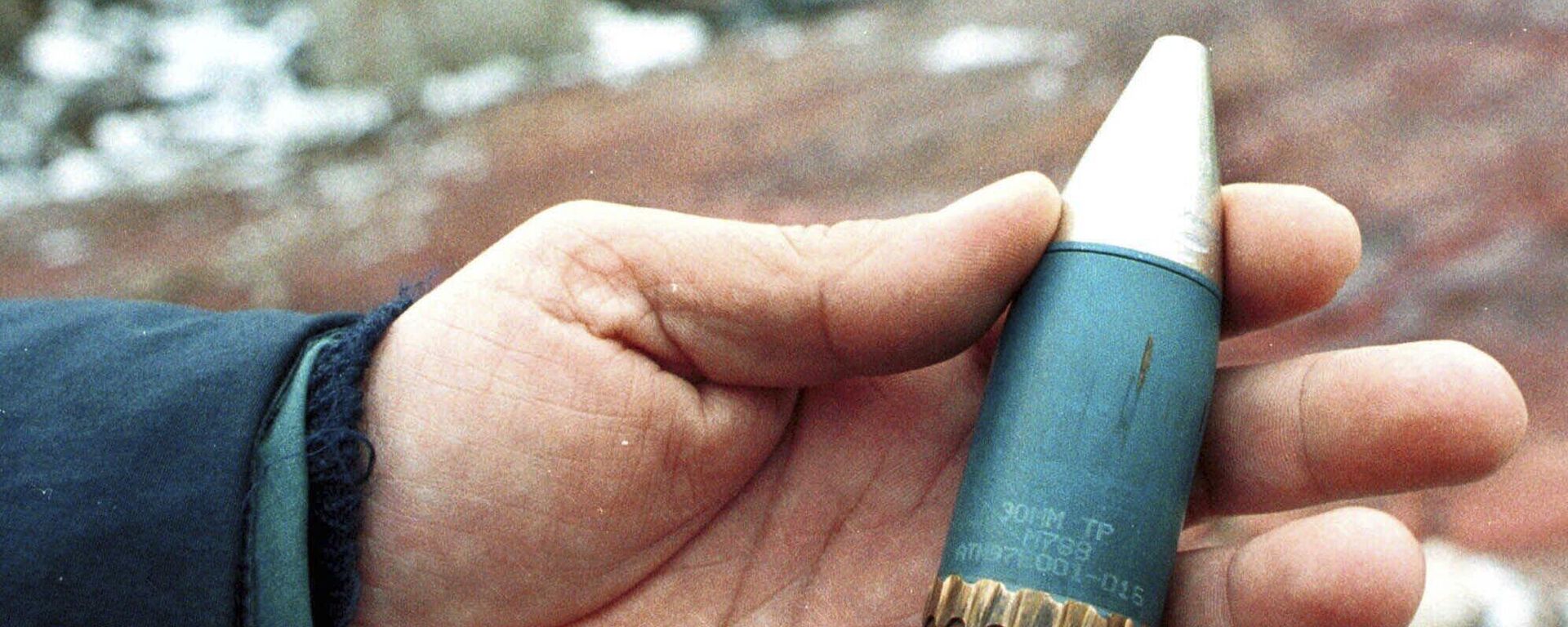https://en.sputniknews.africa/20230915/bosnia-still-suffering-from-depleted-uranium-munition-bombings-ambassador-1062133285.html
Bosnia Still Suffering From Depleted Uranium Munition Bombings: Ambassador
Bosnia Still Suffering From Depleted Uranium Munition Bombings: Ambassador
Sputnik Africa
MOSCOW (Sputnik) – On September 6, the US Defense Department announced a new $175 million military aid package for Ukraine that includes depleted uranium... 15.09.2023, Sputnik Africa
2023-09-15T16:54+0200
2023-09-15T16:54+0200
2023-09-15T16:54+0200
united states (us)
russia
bosnia and herzegovina (bih)
depleted uranium
international
yugoslavia
north atlantic treaty organization (nato)
russian foreign ministry
maria zakharova
kosovo
https://cdn1.img.sputniknews.africa/img/07e7/09/0f/1062132739_0:1182:1455:2000_1920x0_80_0_0_6fe7e4a607d0c8da405531f2d6c3ce52.jpg
The repercussions of the US-led bombing of the former Yugoslavia with depleted uranium munitions are still felt in Bosnia and Herzegovina, Bosnian Ambassador to Russia Zeljko Samardzija said on Friday. Based on its own experience, Bosnia and Herzegovina "stands against the use of such shells," the ambassador said. When asked if depleted uranium munitions are much more harmful than the usual ones, the ambassador responded, "they absolutely are," explaining that their consequences are there to impact many generations to come. On September 6, the US Defense Department announced a new $175 million military aid package for Ukraine that includes depleted uranium munitions for Abrams tanks, as well as air defense equipment and 155mm artillery shells.Later, the Russian Foreign Ministry spokeswoman Maria Zakharova explained that the rate of cancer diagnoses increased in places where depleted uranium ammunition was used. Italian soldiers who took part in the NATO bombing of Yugoslavia, experienced consequences, Zakharova added.From March 24 to June 10, 1999, the North Atlantic Treaty Organization (NATO) launched air strikes against Yugoslavia. After several days of bombing, it claimed around 2,500 people lives, including 87 children.During the NATO bombing campaign in Yugoslavia, Western media repeatedly raised concerns over the utilization of depleted uranium munitions. Later in March 2000, the use of depleted uranium during the conflict in Kosovo was confirmed by NATO to the United Nations saying that "a total of approximately 31,000 rounds" of DU ammo was used during NATO's bombings of Yugoslavia.The operation was launched without the approval of the UN Security Council and was based on allegations by Western countries that the Yugoslav authorities were allegedly carrying out ethnic cleansing of Kosovo Albanians.
https://en.sputniknews.africa/20230908/1061971773.html
united states (us)
russia
bosnia and herzegovina (bih)
kosovo
albania
Sputnik Africa
feedback@sputniknews.com
+74956456601
MIA „Rossiya Segodnya“
2023
Sputnik Africa
feedback@sputniknews.com
+74956456601
MIA „Rossiya Segodnya“
News
en_EN
Sputnik Africa
feedback@sputniknews.com
+74956456601
MIA „Rossiya Segodnya“
Sputnik Africa
feedback@sputniknews.com
+74956456601
MIA „Rossiya Segodnya“
united states (us), russia, bosnia and herzegovina (bih), depleted uranium, international, yugoslavia, north atlantic treaty organization (nato), russian foreign ministry, maria zakharova, kosovo, albania, united nations (un)
united states (us), russia, bosnia and herzegovina (bih), depleted uranium, international, yugoslavia, north atlantic treaty organization (nato), russian foreign ministry, maria zakharova, kosovo, albania, united nations (un)
Bosnia Still Suffering From Depleted Uranium Munition Bombings: Ambassador
MOSCOW (Sputnik) – On September 6, the US Defense Department announced a new $175 million military aid package for Ukraine that includes depleted uranium munitions of different kinds. Sputnik has talked to a diplomat from a country that has a firsthand expirience of bombings depleted uranum munitions.
The repercussions of the US-led bombing of the former Yugoslavia with depleted uranium munitions are still felt in Bosnia and Herzegovina, Bosnian Ambassador to Russia Zeljko Samardzija said on Friday.
"Our stance [on shells] is absolutely clear – it has been 30 years since the bombings of Yugoslavia with [depleted] uranium and we still feel the consequences of this weapon. Our citizens continue to die today, while new citizens, children, are born with disabilities – the consequence of bombings with such munitions," Samardzija told journalists.
Based on its own experience, Bosnia and Herzegovina "stands against the use of such shells," the ambassador said.
"We are a small country and we do not get consulted a lot; nevertheless, we would like to express our opinion and it is as follows. Unfortunately, we have had a very bad experience and we got to fully experience the consequences of these shells," he said.
When asked if depleted uranium munitions are much more harmful than the usual ones, the ambassador responded, "they absolutely are," explaining that their consequences are there to impact many generations to come.
On September 6, the US Defense Department announced a new $175 million
military aid package for Ukraine that includes depleted uranium munitions for Abrams tanks, as well as air defense equipment and 155mm artillery shells.
Later, the Russian Foreign Ministry spokeswoman Maria Zakharova explained that the rate of cancer diagnoses increased in places where depleted uranium ammunition was used. Italian soldiers who took part in the
NATO bombing of Yugoslavia, experienced consequences, Zakharova added.
From March 24 to June 10, 1999, the North Atlantic Treaty Organization (NATO) launched air strikes against Yugoslavia. After several days of bombing, it claimed around 2,500 people lives, including 87 children.
During the NATO bombing campaign in
Yugoslavia, Western media repeatedly raised
concerns over the utilization of depleted uranium munitions. Later in March 2000, the use of depleted uranium during the conflict in Kosovo was confirmed by NATO to the United Nations saying that "a total of approximately 31,000 rounds" of DU ammo was used during NATO's bombings of Yugoslavia.
The operation was launched without the approval of the UN Security Council and was based on allegations by Western countries that the Yugoslav authorities were allegedly carrying out ethnic cleansing of Kosovo Albanians.


